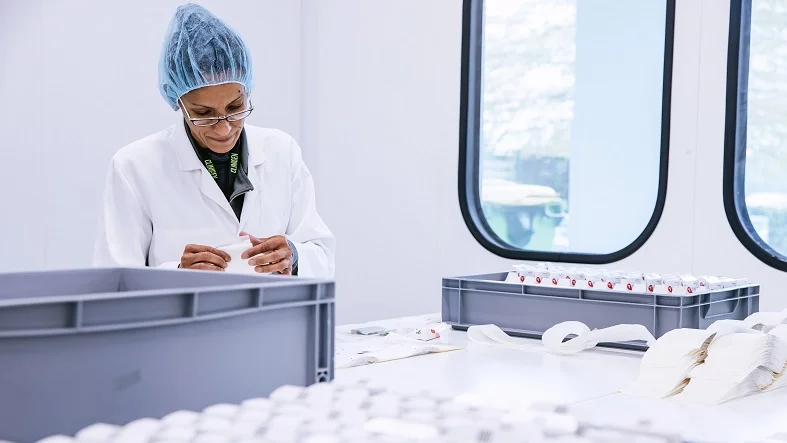Clinical trial packaging is a critical component of the medical research process. It encompasses the design, production, and distribution of packaging materials for investigational products. The packaging must meet stringent regulatory standards to ensure the safety, efficacy, and integrity of the clinical trial. This blog delves into the intricacies of clinical trial packaging, exploring the challenges and best practices involved in this essential aspect of clinical research.
The Importance of Clinical Trial Packaging
Packaging in clinical trials serves several crucial functions. It protects the investigational product from physical damage, contamination, and degradation. Additionally, it provides vital information to trial participants and investigators, such as dosage instructions, storage conditions, and expiration dates. Proper packaging is essential for maintaining the integrity of the product and ensuring the reliability of the trial results.
Regulatory Compliance
One of the primary considerations in clinical trial packaging is regulatory compliance. Different countries have specific regulations regarding the packaging of investigational products. These regulations are designed to protect participants and ensure the quality of the products used in trials. Compliance with these regulations requires meticulous attention to detail, from the materials used in the packaging to the information provided on the labels. Failure to comply can result in delays, increased costs, and even the termination of the trial.
Design and Development
The design and development of clinical trial packaging are complex processes that require collaboration between various stakeholders, including researchers, packaging engineers, and regulatory experts. The packaging must be designed to meet the specific needs of the trial, taking into account factors such as the nature of the investigational product, the trial duration, and the storage conditions. Additionally, the packaging must be user-friendly to ensure that participants can easily access and use the product as intended.
Material Selection
Selecting the appropriate materials for clinical trial packaging is crucial for ensuring the stability and integrity of the investigational product. The materials must provide adequate protection against environmental factors such as light, moisture, and temperature fluctuations. Additionally, they must be compatible with the product to prevent any chemical interactions that could compromise its quality. Common materials used in clinical trial packaging include glass, plastic, and aluminum, each with its own advantages and limitations.
Labeling
Labeling is a critical aspect of clinical trial packaging. The labels must provide clear and accurate information about the product, including its name, dosage, administration instructions, and storage conditions. Additionally, the labels must include information required by regulatory authorities, such as trial identification numbers and expiration dates. Ensuring that the labels are correctly applied and legible is essential for maintaining compliance and minimizing the risk of errors.
Blinding and Randomization
Blinding and randomization are key elements in many clinical trials, particularly those that are double-blind or placebo-controlled. The packaging must be designed to facilitate these processes while maintaining the blinding of the study. This often involves using identical packaging for different treatment groups and implementing robust systems for randomization and distribution. Maintaining the blinding is essential for ensuring the validity and reliability of the trial results.
Cold Chain Logistics
Many investigational products, particularly biologics, require specific temperature conditions to maintain their stability and efficacy. This necessitates the use of cold chain logistics, which involves maintaining the product within a defined temperature range from the point of manufacture to the point of administration. The packaging must be designed to provide adequate insulation and protection during transportation and storage. Additionally, temperature monitoring devices are often included in the packaging to ensure that the required conditions are maintained throughout the supply chain.
Quality Control
Quality control is an essential aspect of clinical trial packaging. Rigorous testing and inspection processes must be implemented to ensure that the packaging meets all relevant standards and specifications. This includes testing the materials for durability and compatibility, verifying the accuracy of the labels, and conducting stability studies to ensure that the product remains stable under the specified conditions. Implementing robust quality control measures helps to ensure the safety and efficacy of the investigational product.
Best Practices in Clinical Trial Packaging
Implementing best practices is crucial for ensuring the success of clinical trial packaging. These practices include:
- Early Planning: Engage all relevant stakeholders early in the trial planning process to ensure that the packaging design meets the specific needs of the trial.
- Regulatory Expertise: Consult with regulatory experts to ensure that the packaging complies with all relevant regulations and standards.
- User-Friendly Design: Design the packaging to be user-friendly, taking into account the needs and capabilities of the trial participants.
- Robust Quality Control: Implement rigorous quality control processes to ensure that the packaging meets all relevant standards and specifications.
- Cold Chain Management: Develop a comprehensive cold chain management plan for products that require specific temperature conditions.
Conclusion
Clinical trial packaging is a vital component of the medical research process, requiring meticulous planning, design, and execution. By understanding the complexities involved and implementing best practices, researchers can ensure the integrity and reliability of their trials, ultimately contributing to the advancement of medical science and the development of new treatments.

